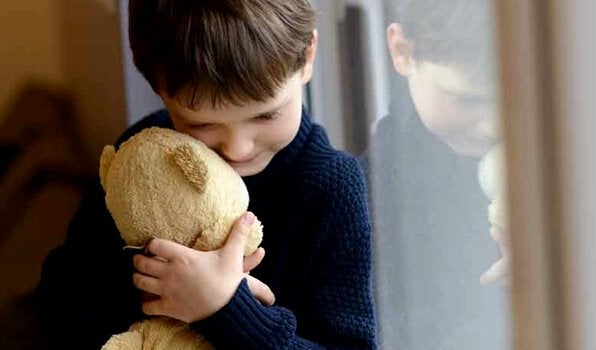Growing up in a dysfunctional family can leave serious injuries in adulthood, however, this type of family is much more common than we think, emotional manipulation, humiliating behaviors, lack of empathy and sensitivity, communication problems and addiction are some of the characteristics that demonstrate that a family is dysfunctional.
Children, when they grow up in such a home, need to adapt to survive and protect themselves from this environment, which is not the most appropriate, and are exposed to dysfunctional behaviors that they will likely repeat later in adult life. .
- The family environment can facilitate or hinder the psychological development of children.
- So its importance is obvious.
As we said earlier, it is common to find dysfunctional families, so it is also natural for children to have learned to take on different roles that allow them to protect or submit to them. There are 5 types of roles that younger children can play and the choice will depend on the personality of the child and the dysfunctional family in which he grew up.
Parents often say they have difficult or rebellious children who “drive them crazy,” but they don’t realize that this is all a consequence of their lack of love, attention, and appreciation.
Perhaps some of us felt identified with some of these roles that we unconsciously assumed when we were still very young and knew nothing about life or relationships. Each of these roles was born based on how the family surrounds us, how they behave with us and how they make us feel.
Members of a dysfunctional family do not realize that no matter how much they refer to children and call them rebels, the origin of the family problem is actually adults, some adults have not taught or taught children how to interact healthily.
In this way, children become small people who will learn patterns of dysfunctional behavior that will reproduce in adulthood, for example, if a child grows up in a dysfunctional family where there is abuse and addiction, where his parents are immersed in his problems, do not pay attention to him and he feels guilty about it, is that child likely to assume the role of unworthy ?.
In the future, what kind of relationship will this child have?Conflicting relationships because you’ll feel like you can’t choose, even if you find someone who also abuses her, will probably accept abuse because that’s how they’ve always treated her, she suffers, but feels like this kind of relationship is normal.
What about your work or friendship relationships? Your lack of self-esteem and your constant feeling of guilt will make you feel responsible for your failures, but also that of others, so it won’t be strange if you tend to perfectionism.
A is the environment in which children grow up, the model they have for learning to connect with others, if we do not want to improve our relationships, solve any communication problems that may exist and set a good example for the youngest members of the family . What do we do? We perpetuate harmful behaviors that will cause them much suffering in adulthood.
Although many of us grew up in a dysfunctional family, as adults we are the protagonists of our lives and we can heal all these childhood wounds to change the path we will take from now on.

